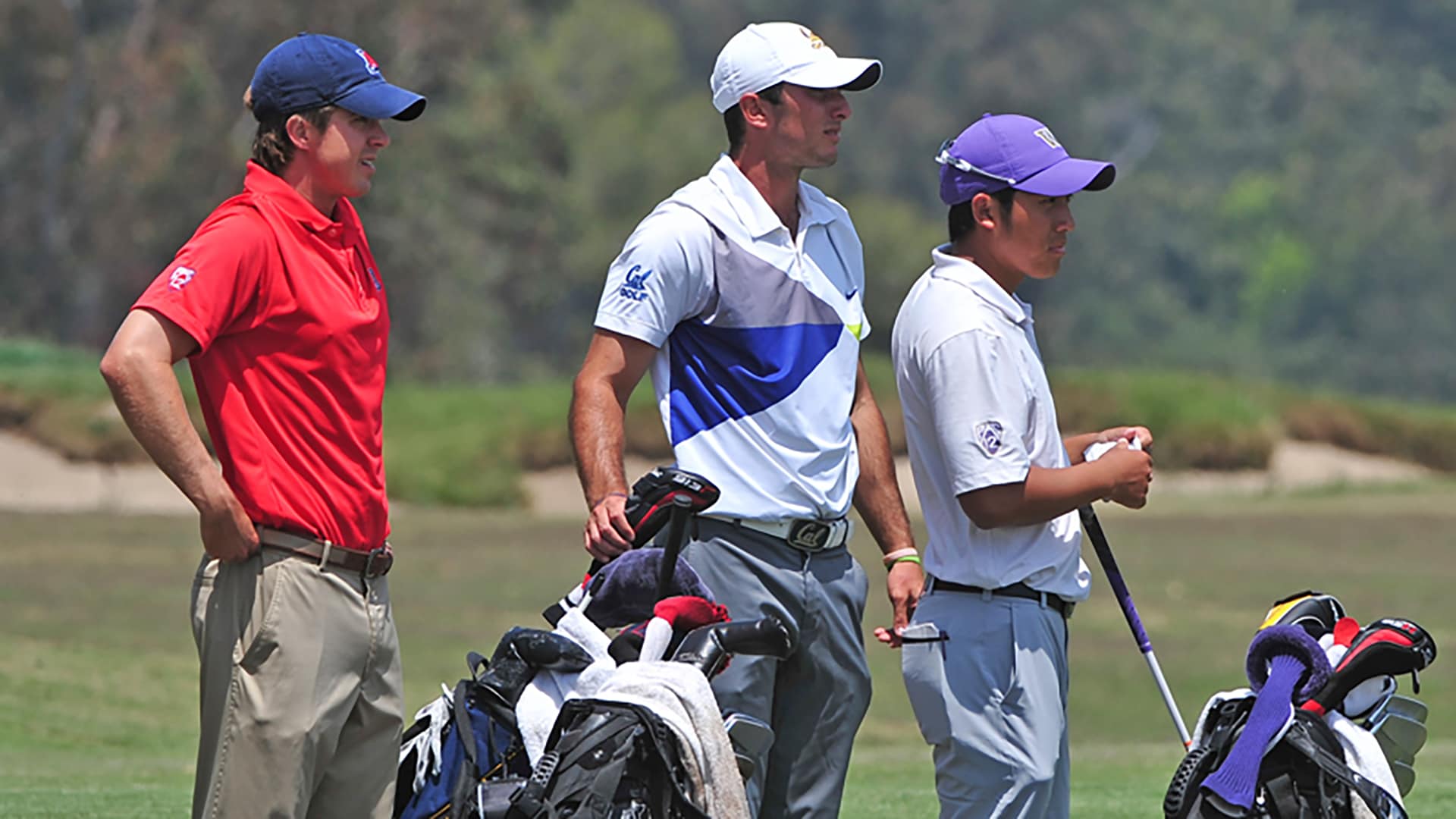Witness to history: What is was like watching Max Homa shoot a record 61 at LACC

Trent Redfern and Max Homa had a running joke during their careers on the Pac-12 golf circuit: Whenever the duo got paired together, a poor round was on the horizon for Homa.
“Obviously that all came to an end after just one round,” Redfern said recently.
With the U.S. Open making its debut at Los Angeles Country Club this week, Homa’s jest-ending loop on Day 1 of the 2013 Pac-12 Championship is back in the limelight. The senior at Cal shot a 9-under 61 at LACC, setting a course record that remains in place today.
There to watch it all was Redfern, who along with Washington’s C.T. Pan was Homa’s playing competitor that day. Redfern was a senior at the University of Arizona at the time and played many rounds that season with Homa, oftentimes as the No. 2 on their respective teams.
What Homa did that day was a jarring surprise, but Redfern noted his playing competitor had certain tools to win at such a difficult course and prestigious event. Homa snagged a four-shot lead over fellow Golden Bear Michael Weaver after Round 1, and Homa shot even-par over the final two days to win the Pac-12 title.
“Max was always such a good ball-striker, and back then he was one of the longer hitters in our conference, so he automatically had an advantage at a place like LACC,” Redfern said. “There were times we were hitting 7-iron or 8-iron into greens, and he had a wedge.”
Still, when Redfern reflects on Homa’s round, the lasting memory is the six-time PGA Tour winner making putt after putt, while the rest of the field struggled on the glass-like greens.
“It was like he had this confidence in his putting that nobody else had, and he realized he should take advantage of it and be super aggressive all round,” said Redfern, who is currently president of Daniels-Head Insurance Agency in Austin, Texas. “There was no fear. His self-image was massive that day. Everything he wanted to pull off, especially around the greens, was perfect.”
Homa was 5 under through 13 holes when he slammed the pedal to the floorboard and sprinted across the finish line.
Gil Hanse, who led the course’s restoration project that began in 2010, has repeatedly said the closing stretch of LACC is the most challenging part of the property. Homa wasn’t fazed and recorded four-straight birdies, starting on No. 14 and ending on 17, to grab the course record by the neck.
Arguably the most impressive red circle on the scorecard was Homa’s birdie at the par-4 16th, which is the longest par 4 at LACC. According to golfstatresults.com, it played 505 yards that day.
Redfern said after that birdie, everyone in the group could feel that something special was taking place. College coaches who might normally be eager to provide advice were nowhere to be found. No words were said between the playing trio. Tension and adrenaline were in the air.
Homa bottled up those butterflies and used them to his advantage on the next tee shot.
“(Homa) hit a 3-wood or a hybrid off 17. I used driver, and he definitely outdrove me,” Redfern said. “There’s definitely some risk to that hole because if you don’t hit the fairway, it’s almost impossible to get your approach on the green. He might have been laying up, but he just pounded one that put him in the best position possible to make that last birdie.”
A par at 18 and Homa was in with the course record. It’s been 10 years since that round, but Redfern still says it’s the best round of golf he’s ever witnessed in person. Redfern doesn’t think anyone will come close to a 61 at this week’s U.S. Open, mainly due to an even more challenging setup and longer course.
But like the rest of the world, he can’t wait to watch.
“It’s a place with history that every generation can appreciate,” Redfern said. “It’s going to be a show. I hope Max can replicate some of his success from that Pac-12 Championship.”
